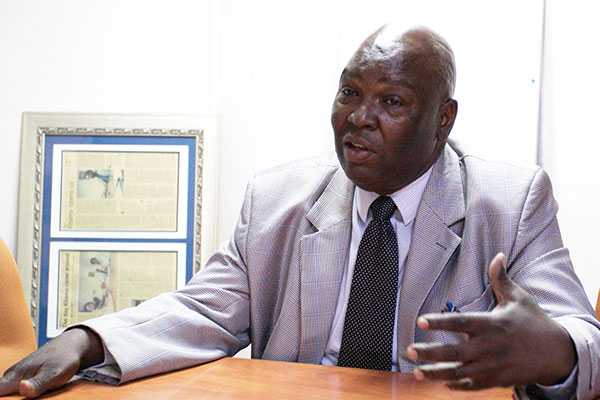Kweneng district head teachers fail the test
All Kweneng schools except for two, failed to reach the region’s set pass target, Botswana Guardian has established. The Kweneng region, which starts from Mogoditshane to Tsetseng, has set 65 percent as its pass mark. Each of the four sub-regions has a Chief Education Officer.
The region has identified poor relationship between the school heads and teachers, lack of supervision, guidance and preparation, as well as failure by schools to act on reports submitted by supervisors as the main causes of poor performance.Teachers refuse to be posted to settlements like Kaudwane, Sorilatholo and Loologane or in some cases, delay their arrival by up to two months.
Benson Rauwe, the Regional Education Director shared his experience regarding teaching and learning in Kweneng region with Botswana Guardian. He said the region has set 65 percent as its pass rate for primary schools and that only Sebele and Dutlwe surpassed this with 95 and 93 percent pass rate, which he attributed to the supervision offered by particular school heads in those schools.
However, junior schools results are poor, hovering at 31 percent with the highest schools being Letlole Mosielele and Sedumedi at 39 percent, while the lowest is Limpu in Salajwe at 16 percent. Rauwe suspects that the transition from primary to secondary is not well structured. He reckons that learners need support and guidance on what to learn and how to learn it. For example, if one use lecture methods at primary level where pupils are used to group work it becomes difficult.
Kweneng has three senior schools. In 2017 Mogoditshane pass rate was 26 percent; Kgari Sechele 17 percent and Mahupu 13 percent. Rauwe says these results are indicative of a big problem in Kweneng and in his analysis he has concluded that schools must return to the basics where the teacher teaches; the learner learns, while the school head, Deputy and Heads of Departments supervise. Sadly, from the inspection reports he has been receiving, it turns out that teachers do not prepare and some are not given support.
He said this year they were fortunate to be introduced to a clinical supervision which involves participating with the teacher in pre-observation conference to decide which topic to teach and how it is taught.“We emphasised that the Director, Chief Education Officers, Principal Education Officers and school heads should go out and support the teacher using the pre-observation tool”.
Sedumedi
Sedumedi junior receives learners from Sebele I, which had about 50 students who passed with Grade A in 2017 and 2016. Rauwe had hoped that this school would be getting good results. However, when he visited the school and asked the principal how many lessons has he observed from August to September 2018, he was shocked to find there were only five. “I did not complain”.
But instead met the HoD where he realised that there were no teaching plans and schedules.Rauwe also attributes poor academic results to the relationship between the school heads and their deputies. At Sedumedi school he says the school head claims to be active but when he brought the school head and the deputy together, he found that the school head often sneaks out during working hours.“Team work is lacking in our schools, the school head, deputy and HoDs do not come together to strategise.
Every term we meet with the school heads we realised that their reports are cosmetic,” hence they have decided that every month the school heads must give monthly reports on the learners, ensure monthly tests are written and the results are registered, “so that we can track the performance”.
Mahupu
Learners at Mahupu integrated school are suffering because teachers claim that they are specialists and cannot teach integrated science. “Equally disturbing is that administrators in junior schools such as Motswasele and Moruakgomo are not fully playing their part,” he said. Other causes of poor performance are due to teachers that go into a class to teach without a lesson plan.
Because students learn differently they equally need to be planned for so that the teacher has a strategy on how to help them individually and collectively, observes Rauwe. In Kaudwane and Mmanoko, Rauwe found teachers teaching without a lesson plan. “What shocked me at Kaudwane is that the learners in Standard Three can read neither Setswana nor English.
“It must be noted that learners do not just automatically read or write, it is the teacher who has to teach them phonetics, and use other teaching methods, but if we do not do that, it means we will continue getting poor results.






